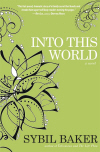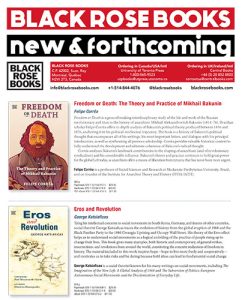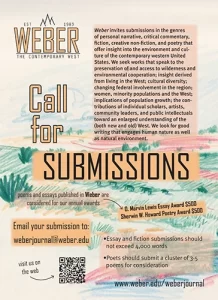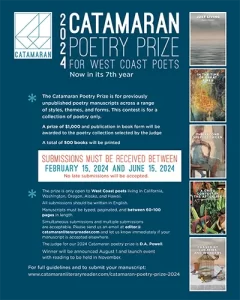Into This World
Into This World is a novel that spans time, point of view, and geography to tell the story of a family’s search for identity and relationship. Mina is a child brought home from the Korean War by Wayne to join his American family that consists of his wife Bonnie, who longs for a second child, and his daughter Allison, who is not so pleased by the family’s new addition. The story opens when Allison and Mina are adults. Mina has moved to Korea in search of her birth mother and to reclaim her heritage. Allison discovers she has unfinished business with Mina and travels to Seoul in hopes of unraveling their complex past.
Into This World is a novel that spans time, point of view, and geography to tell the story of a family’s search for identity and relationship. Mina is a child brought home from the Korean War by Wayne to join his American family that consists of his wife Bonnie, who longs for a second child, and his daughter Allison, who is not so pleased by the family’s new addition. The story opens when Allison and Mina are adults. Mina has moved to Korea in search of her birth mother and to reclaim her heritage. Allison discovers she has unfinished business with Mina and travels to Seoul in hopes of unraveling their complex past.
In a two-hundred-and-four page novel that hones one slice of what could have easily become an epic family saga, I can only imagine that author Sybil Baker had to make the hard choices that novelists do: whose point of view best tells what happened, how to insert necessary backstory to clarify the narrative present, and which character should reveal his or her secret and when to maintain tension, especially when each of the main characters in the book has at least one secret.
Into This World is told mostly from Allison’s third-person point of view. She is the character that we come closest to knowing. Through Allison, we also come to know Mina and the bulk of her mystery. Wayne’s four point-of-view chapters in the novel’s beginning tell the story of his past and how Mina came to their lives. Mina’s two point-of-view chapters serve to fill in the gaps of her time spent missing in Korea while Allison searches for her. One of the two chapters reveals an event from adolescence that motivated Mina’s actions in adulthood—an event that she once concealed, and that now only she can tell. The dark and beautiful Mina and the mystique surrounding her life draw the reader’s attention, yet in the end, it is Allison’s tenacity to move forward in her own life, to heal her own past, that provides the agency to propel the narrative towards its conclusion.
Baker’s finely rendered prose, her engrossing plot, and her rich descriptions of an exotic place—the food, the night life, and the customs—are all enough to provide an impetus to read Into This World, as the author does indeed propel us into another world and keep us there for the duration:
A man dropped a large glowing coal in the middle of their table, and placed a grill on top. A plate of sliced pork called samgyeopsal was brought out with plates of lettuce, kimchi, onions, garlic. Jason lifted the tongs and laid the slabs of meat on the grill . . . Soju and beer were ordered and the first shots and cheers already delivered when the others arrived.
And later:
Filmy black scarves draped from the ceilings and curtained sections of the bar. Dim lights dotted the low slung tables and red velvet chairs and couches formed miniature living rooms . . . the waiter reappeared with a large hookah pipe. Apple-flavored tobacco. . . . The air smelled like apples and woodsmoke. With the low lights, red furniture, black diaphanous curtains, the persistent beat of the techno music, Allison felt like she’d stepped into an opium den .
Still, I became interested in how the author’s choices in structure and craft enhanced my experience as the reader: that we know each of the character’s stories better than they know each other’s and observe how their assumptions of one another first undo and then recreate them; that Wayne’s flashback chapters, his wartime memories, are inserted between Allison’s chapters of traveling and discovering the place where his flashbacks occur; and that Mina’s interior is kept distant until the point in the story where she locates her birth mother.
It’s as if Baker used technique itself as a metaphor for the themes they represent. Wayne travels in his mind to a place in history that he’s repressed (flashback), as his daughter travels there in actuality and into her future. Mina’s narrative perspective (close third person) appears in the part of the novel where she unearths her mother’s identity and whereabouts. And Allison, who had lived a risk-free life relative to Mina (who in the beginning of the novel sees herself as victim, as “done-to,” as the lesser of daughters), takes on most of the narrative risk, thereby claiming the voice of the family story. She narrates two-thirds of the twenty-four chapters.
As I think about family dynamics regarding perspective, I am struck by how the novel encapsulates present actions for two sisters that are heavily founded on the choices of the father, long ago and far away. What’s true for each is what he or she perceives as truth, but is not necessarily true for the others. No one person has all of the pieces to the family puzzle. Each needed the necessary pages in which to tell their version of the story. In the final chapter, the narration becomes omniscient; all of the family members are represented, with Allison having the final word:
At the temple spring she dipped a hollowed-out gourd into the cool mountain water. She walked to her father and squatted down so they were eye level.
“Here, Daddy.” She nudged the gourd so that he had to part his hands. “Take this. Drink this.”
Besides commenting on family, Into This World depicts the societal differences between the U.S. and Korea, the long-lasting consequences of cultural co-existence in wartime, and the impact of bi-racial identity in a contemporary world that has yet to fully accept diversity. As such, it’s a novel that offers the story of one insular family for a more global consideration—a reason to present multiple perspectives in the final chapter, as daughter offers water to her father from a foreign land they’ve both come to know in their way, in their own time.





